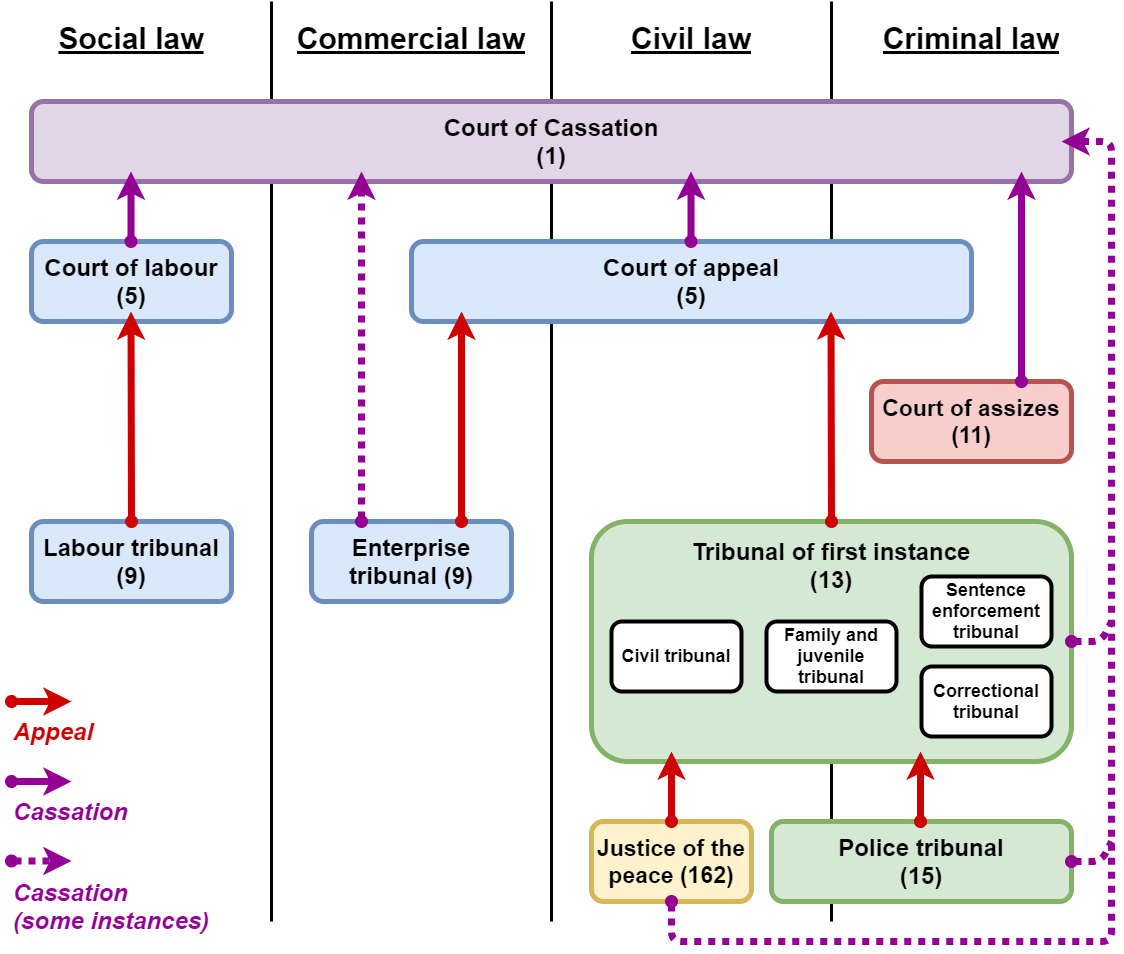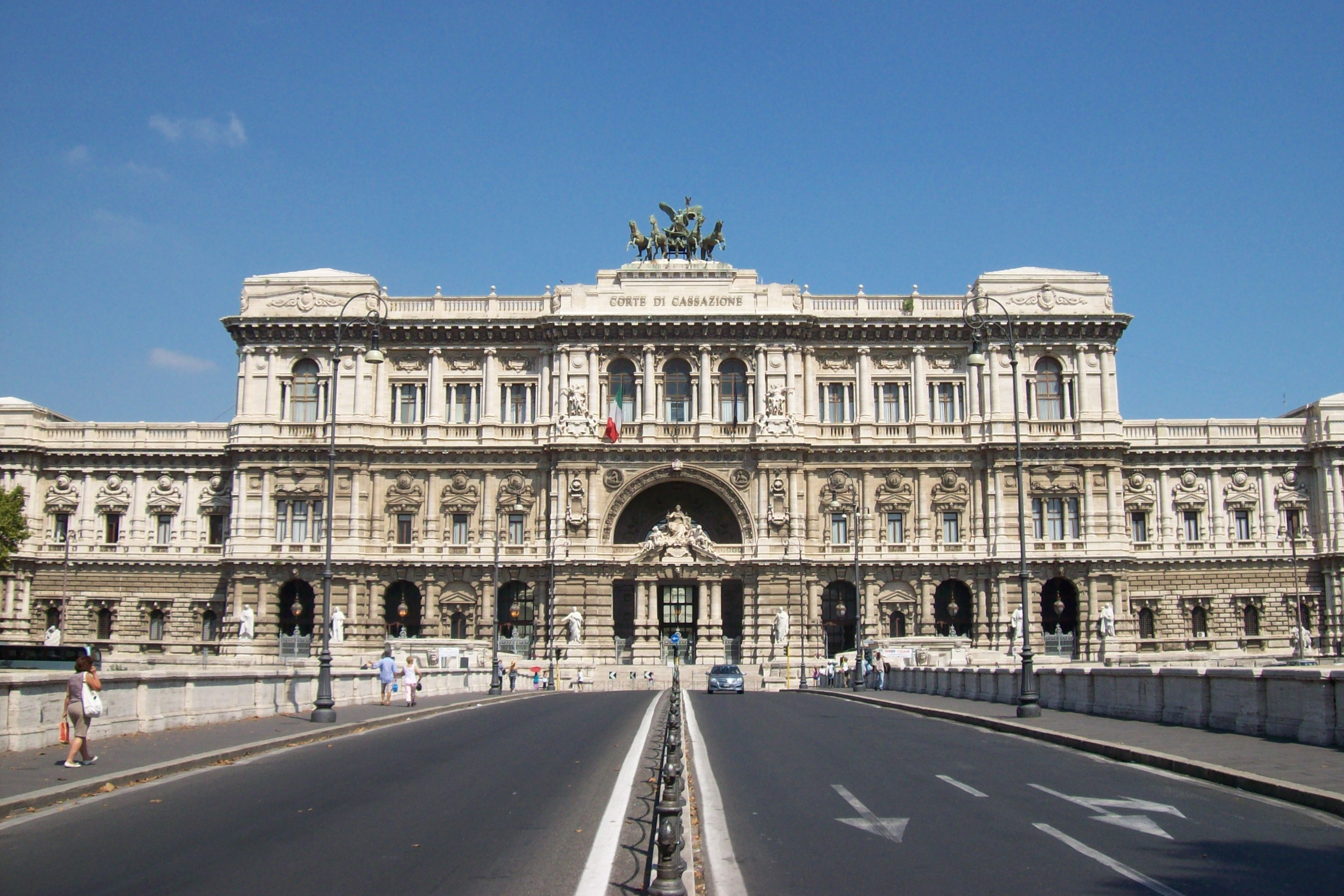|
Corte D'Assise
The Corte d'Assise ( en, Court of Assizes) is an Italian court composed of two professional, stipendiary judges or ''giudici togati''; and six lay judges or ''giudici popolari'', who are selected from the people. The Corte d'Assise has jurisdiction to try all crimes carrying a maximum penalty of 24 years in prison or more. These are the most serious crimes, such as terrorism and murder. Also slavery, killing a consenting human being, and helping a person to commit suicide are serious crimes that are tried by this court. Penalties imposed by the court can include life sentences (''ergastolo''). The Corte d'Assise does not preside over cases involving attempted murder. The prosecution is conducted by the Public Prosecutor ('' Pubblico Ministero''). Decisions are made by ''giudici togati'' and ''giudici popolari'' together at a special meeting held behind closed doors, named Council Chamber (''Camera di Consiglio''), and the Corte d'Assise is required to publish written explanations ... [...More Info...] [...Related Items...] OR: [Wikipedia] [Google] [Baidu] |
Stipend
A stipend is a regular fixed sum of money paid for services or to defray expenses, such as for scholarship, internship, or apprenticeship. It is often distinct from an income or a salary because it does not necessarily represent payment for work performed; instead it represents a payment that enables somebody to be exempt partly or wholly from waged or salaried employment in order to undertake a role that is normally unpaid or voluntary, or which cannot be measured in terms of a task (e.g. members of the clergy). A paid judge in an English magistrates' court was formerly termed a "stipendiary magistrate", as distinct from the unpaid "lay magistrates". In 2000, these were respectively renamed " district judge (magistrates courts)" and "magistrate". Stipends are usually lower than would be expected as a permanent salary for similar work. This is because the stipend is complemented by other benefits such as accreditation, instruction, food, and/or accommodation. Some graduate schools ... [...More Info...] [...Related Items...] OR: [Wikipedia] [Google] [Baidu] |
Jurors
A jury is a sworn body of people (jurors) convened to hear evidence and render an impartial verdict (a finding of fact on a question) officially submitted to them by a court, or to set a penalty or judgment. Juries developed in England during the Middle Ages and are a hallmark of the English common law system. As such, they are used by the United Kingdom, the United States, Canada, Ireland, Australia, and other countries whose legal systems were derived from the British Empire. But most other countries use variations of the European civil law or Islamic sharia law systems, in which juries are not generally used. Most trial juries are " petit juries", and usually consist of twelve people. Historically, a larger jury known as a grand jury was used to investigate potential crimes and render indictments against suspects. All common law countries except the United States and Liberia have phased these out. The modern criminal court jury arrangement has evolved out of the ... [...More Info...] [...Related Items...] OR: [Wikipedia] [Google] [Baidu] |
Judiciary Of Italy
The judiciary of Italy is a system of courts that interpret and apply the law in the Italian Republic. In Italy, judges are public officials and, since they exercise one of the sovereign powers of the State, only Italian citizens are eligible for judgeship. In order to become a judge, applicants must obtain a degree of higher education as well as pass written and oral examinations. However, most training and experience is gained through the judicial organization itself. The potential candidates then work their way up from the bottom through promotions. Italy's independent judiciary enjoys special constitutional protection from the executive branch. Once appointed, judges serve for life and cannot be removed without specific disciplinary proceedings conducted in due process before the High Council of the Judiciary. The structure of the Italian judiciary is divided into three tiers: inferior courts of original and general jurisdiction, intermediate appellate courts which hear case ... [...More Info...] [...Related Items...] OR: [Wikipedia] [Google] [Baidu] |
Government Of Italy
The government of Italy is in the form of a democratic republic, and was established by a constitution in 1948. It consists of legislative, executive, and judicial subdivisions, as well as a Head of State, or President. The Italian Constitution is the result of the work of the Constituent Assembly, which was formed by the representatives of all the anti-fascist forces that contributed to the defeat of Nazi and Fascist forces during the Italian Civil War. Article 1 of the Italian constitution states: ''Italy is a democratic Republic founded on labour. Sovereignty belongs to the people and is exercised by the people in the forms and within the limits of the Constitution''. By stating that Italy is a democratic republic, the article solemnly declares the results of the constitutional referendum which took place on 2 June 1946. The State is not a hereditary property of the ruling monarch, but it is instead a '' Res Publica'', belonging to everyone. The people who are called t ... [...More Info...] [...Related Items...] OR: [Wikipedia] [Google] [Baidu] |
Court Of Assizes (Belgium)
The court of assizes ( nl, hof van assisen, french: cour d'assises, german: Assisenhof) is the trial court which tries the most serious crimes in the judicial system of Belgium. It is the highest Belgian court with criminal jurisdiction; as such, it is the only Belgian court that can sentence someone to life imprisonment. The courts of assizes are not permanent courts; a new court of assizes is assembled for each new trial. There is a court of assizes in each of the ten provinces of Belgium, as well as one in the arrondissement of Brussels-Capital which is not part of any province. Further below, an overview is provided of the eleven courts of assizes and their seats. They are the only courts in Belgium for which the provinces are used as territorial subdivisions. They are also the only courts in Belgium that hold jury trials. The jury acts as sole trier of fact, but decides on the penalty together with the judges. The trial by jury of certain crimes is laid down in article 15 ... [...More Info...] [...Related Items...] OR: [Wikipedia] [Google] [Baidu] |
Cour D'assises
In France, a ''cour d'assises'', or Court of Assizes or Assize Court, is a criminal trial court with original and appellate limited jurisdiction to hear cases involving defendants accused of felonies, meaning crimes as defined in French law. It is the only French court consisting in a jury trial. Justiciable matters Under French law, the definition of a ''crime ( m)'' is limited to any criminal act punishable by over 10 years of prison, including murder and rape. Previous death penalty application The ''cour d'assises'', uniquely outside military law, could sentence proven convicts for serious crimes, e.g. murder (''assassinat'' or ''meurtre'') to the death penalty, until it was abolished from French law in September 1981. In the sentencing phase, a qualified majority would vote on the verdict, or 2/3 of the jury, the same procedure as in rendering the guilty verdict. One of the last famous death penalty trials, that of Patrick Henry in 1977, famously ended in a life sente ... [...More Info...] [...Related Items...] OR: [Wikipedia] [Google] [Baidu] |
Court Of Cassation (Italy)
The Supreme Court of Cassation ( it, Corte Suprema di Cassazione) is the highest court of appeal or court of last resort in Italy. It has its seat in the Palace of Justice, Rome. The Court of Cassation also ensures the correct application of law in the inferior and appeal courts and resolves disputes as to which lower court (penal, civil, administrative, military) has jurisdiction to hear a given case. Procedure The Italian Supreme Court of Cassation is the highest court of Italy. Appeals to the Court of Cassation generally come from the Appellate Court, the second instance courts, but defendants or prosecutors may also appeal directly from trial courts, first instance courts. The Supreme Court can reject, or confirm, a sentence from a lower court. If it rejects the sentence, it can order the lower court to amend the trial and sentencing, or it can annul the previous sentence altogether. A sentence confirmed by the Supreme Court of Cassation is final and definitive, and cann ... [...More Info...] [...Related Items...] OR: [Wikipedia] [Google] [Baidu] |
Sequestration (law)
In law, sequestration is the act of removing, separating, or seizing anything from the possession of its owner under process of law for the benefit of creditors or the state. Etymology The Latin ''sequestrare'', to set aside or surrender, a late use, is derived from sequester, a depositary or trustee, one in whose hands a thing in dispute was placed until the dispute was settled; this was a term of Roman jurisprudence (cf. ''Digest L.'' 16,110). By derivation it must be connected with ''sequi'', to follow; possibly the development in meaning may be follower, attendant, intermediary, hence trustee. In English "sequestered" means merely secluded, withdrawn. England In law, the term "sequestration" has many applications; thus it is applied to the act of a belligerent power which seizes the debts due from its own subject to the enemy power; to a writ directed to persons, "sequestrators," to enter on the property of the defendant and seize the goods. Church of England There are also ... [...More Info...] [...Related Items...] OR: [Wikipedia] [Google] [Baidu] |
Jurisprudence
Jurisprudence, or legal theory, is the theoretical study of the propriety of law. Scholars of jurisprudence seek to explain the nature of law in its most general form and they also seek to achieve a deeper understanding of legal reasoning and analogy, legal systems, legal institutions, and the proper application of law, the economic analysis of law and the role of law in society. Modern jurisprudence began in the 18th century and it was based on the first principles of natural law, civil law, and the law of nations. General jurisprudence can be divided into categories both by the type of question scholars seek to answer and by the theories of jurisprudence, or schools of thought, regarding how those questions are best answered. Contemporary philosophy of law, which deals with general jurisprudence, addresses problems internal to law and legal systems and problems of law as a social institution that relates to the larger political and social context in which it exists. ... [...More Info...] [...Related Items...] OR: [Wikipedia] [Google] [Baidu] |
Flag Of Italy
The national flag of Italy ( it, Bandiera d'Italia, ), often referred to in Italian as ''il Tricolore'' ( en, the Tricolour, ) is a tricolour featuring three equally sized vertical pales of green, white and red, national colours of Italy, with the green at the hoist side, as defined by article 12 of the Constitution of the Italian Republic. Costituzione della Repubblica Italiana Art. 12, 22 dicembre 1947, pubblicata nella Gazzetta Ufficiale n. 298 del 27 dicembre 1947 edizione straordinaria (published in the Official Gazette f the Italian RepublicNo. 298 of 27 December 1947 extraordinary edition) "La bandiera della Repubblica è il tricolore italiano: verde, bianco, e rosso, a tre bande verticali di eguali dimensioni" The Italian law regulates its use and display, protecting its defense and providing for the crime of insulting it; it also prescribes its teaching in Italian schools together with other national symbols of Italy. The Italian Flag Day named Tricolour Day was establ ... [...More Info...] [...Related Items...] OR: [Wikipedia] [Google] [Baidu] |
Terrorism
Terrorism, in its broadest sense, is the use of criminal violence to provoke a state of terror or fear, mostly with the intention to achieve political or religious aims. The term is used in this regard primarily to refer to intentional violence during peacetime or in the context of war against non-combatants (mostly civilians and neutral military personnel). The terms "terrorist" and "terrorism" originated during the French Revolution of the late 18th century but became widely used internationally and gained worldwide attention in the 1970s during the Troubles in Northern Ireland, the Basque conflict, and the Israeli–Palestinian conflict. The increased use of suicide attacks from the 1980s onwards was typified by the 2001 September 11 attacks in the United States. There are various different definitions of terrorism, with no universal agreement about it. Terrorism is a charged term. It is often used with the connotation of something that is "morally wrong". Governm ... [...More Info...] [...Related Items...] OR: [Wikipedia] [Google] [Baidu] |
Public Official
An official is someone who holds an office (function or mandate, regardless whether it carries an actual working space with it) in an organization or government and participates in the exercise of authority, (either their own or that of their superior and/or employer, public or legally private). An elected official is a person who is an official by virtue of an election. Officials may also be appointed '' ex officio'' (by virtue of another office, often in a specified capacity, such as presiding, advisory, secretary). Some official positions may be inherited. A person who currently holds an office is referred to as an incumbent. Something "official" refers to something endowed with governmental or other authoritative recognition or mandate, as in official language, official gazette, or official scorer. Etymology The word ''official'' as a noun has been recorded since the Middle English period, first seen in 1314. It comes from the Old French ''official'' (12th century), from t ... [...More Info...] [...Related Items...] OR: [Wikipedia] [Google] [Baidu] |
.jpg)






